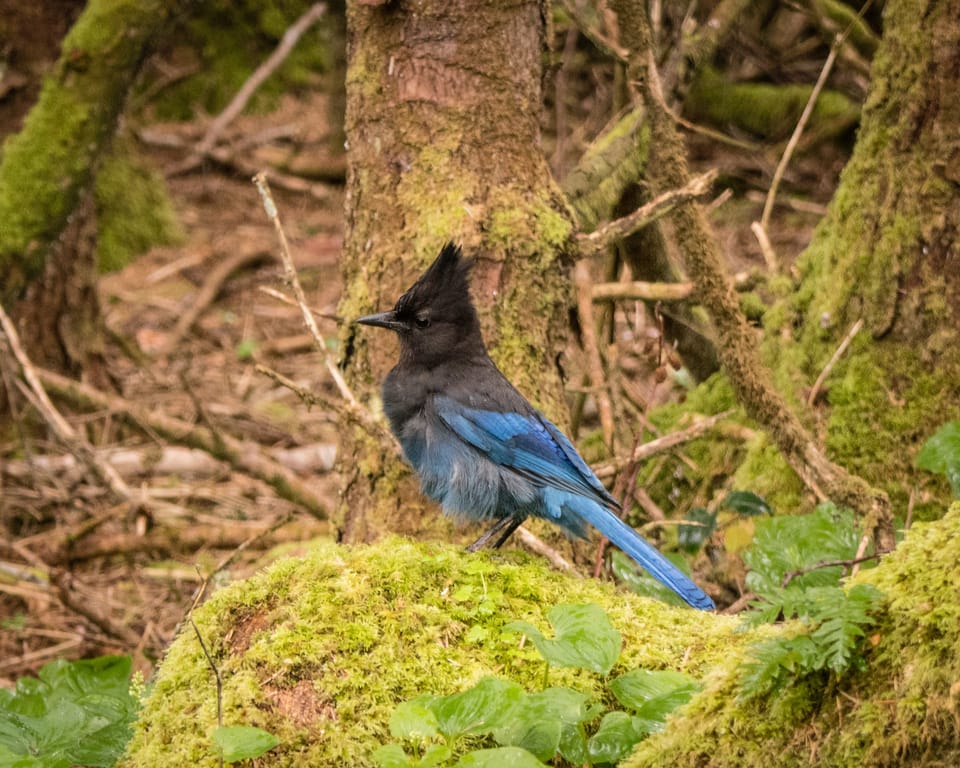EcoWest News, September 30, 2025

Welcome to EcoWest News, a weekly round-up of news and resources that you can put to use in addressing environmental issues and protecting the wild in your community.
Across the West
Expanding Arctic shipping routes brings heightened risk to marine life such as the large numbers of beluga whales that visit Hudson Bay every year. [CTV News]
Alberta’s proposed Restructured Energy Market plan would negatively impact renewables by forcing them to pay for their own power lines and by singling them out for penalties if there’s a power shortage. [The Narwhal]
Dawson Creek, BC, could run out of water in the next few months, highlighting a pressing need to fully understand how the fracking industry’s extensive water usage is affecting the region. [The Tyee]
An LNG boom is underway in Kitimat in northern BC, bringing with it sulphur and nitrogen dioxide levels far exceeding health guidelines. Kitimat already has 74% higher rates of asthma than the rest of the province. [The Tyee]
Experts say there’s a significant wildfire risk in Dragon Mountain, a provincial park near Quesnel, BC, that is popular with mountain bikers. The challenge is in finding the right balance “between values like recreation, conservation, aesthetics and public safety in an increasingly flammable world”. [The Tyee]
Across Canada
Over 250 mayors and city councillors from across Canada are calling on the federal government to adopt nation-building not nation-burning projects, including a clean energy grid, energy-efficient homes, and a national high-speed rail and intercity bus system. [The Energy Mix]
Around the World
A massive increase in satellite launches is obscuring the stars and raising concerns about space junk and catastrophic collisions. [The Guardian]
Making a Difference
A deep retrofit of Tennyson Apartments, Edmonton, achieved a 32% reduction in energy consumption, 44% savings on annual utility costs, and a 33% cut in GHG emissions. They share some tips on how to overcome the systemic hurdles. [Pembina Institute]
Introducing the BC chapter of the Canadian Association of Physicians for the Environment (CAPE): “Our strength is that we can bring ‘the health voice’. Everyone cares about their health, so they listen.” [West Coast Climate Action]
A free Biodiversity Primer for Landscape Architects “introduces the real, concrete steps we can take on every project to protect, conserve, enhance, or restore healthy, enduring habitats for more species.” [The Dirt]
The bottle (including shipping) is responsible for up to 50% of the carbon emissions of wine. Familia Torres plans to ship wine in bulk to a bottler close to the Netherlands and the bottles will be reused up to 10 times. This should reduce CO2 emissions, water usage, and packaging waste. They’ll also be shipping wine in kegs to restaurants and bars. [Carbon Commentary]
An experimental project in Scotland is demonstrating that it could be effective to use drones in planting trees in hard-to-reach places. [Rewilding]
DIY
People in the US throw away 100 pounds of clothing per person per year, while almost one third of the clothing produced every year is never sold. As consumers, we can buy less, be more discerning in what we do acquire, buy or exchange used clothes, wear each garment longer, and find new uses for old pieces. Consumers can also prod regulators and brands to take action. [Scientific American]
Products labelled as compostable – plates, bags, cutlery – aren’t always compostable. It very much depends on where you live. The best solution: focus on reusables. [CBC]
Biodiversity
A rare wildflower, the Downy Gentian, is thriving at Winnipeg’s Living Prairie Museum. It’s one of only two known naturally occurring populations of this vivid blue-violet wildflower in Canada. [WCS Canada]
Nature’s Wonders
The Ocean Photographer of the Year award-winning photos are stunning reminders of marine beauty – and are sometimes heartbreaking. [Gizmodo]
Photo credit: https://www.flickr.com/photos/apmckinlay/34593200561
EcoFriendly West informs and encourages initiatives that support Western Canada’s natural environment through its online publication and the Nature Companion website/app. Like us on Facebook, follow us on BlueSky, X, and Mastodon, or subscribe by email.

Member discussion